Search Results
Showing results 61 to 75 of 75
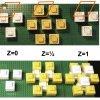
Exploring the Nanoworld with LEGO Bricks: Structures at the Nanoscale
Source Institutions
In this activity (pages 7-16), learners model various crystal structures with LEGOs. This activity also contains additional links that explain how to create other crystal structures.
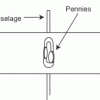
Lift Experiment
Source Institutions
In this experiment, learners investigate how the size of a wing affects lift. Learners count the number of pennies an egg crate plane wing can hold until the plane will no longer fly.

How Big is Small
Source Institutions
In this classic hands-on activity, learners estimate the length of a molecule by floating a fatty acid (oleic acid) on water.
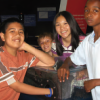
Size and Scale: Probing and Predicting
Source Institutions
In this quick activity about predicting (located on page 2 of the PDF under Where's Nano?
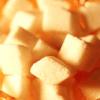
Sugar Crystal Challenge
Source Institutions
This lesson focuses on surface area and how the shape of sugar crystals may differ as they are grown from sugars of different coarseness.
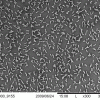
Biomimicry: Synthetic Gecko Tape Through Nanomolding
Source Institutions
In this activity/demo, learners examine a synthetic gecko tape with micron sized hairs that mimics the behavior of the gecko foot.
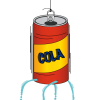
Pop Can "Hero Engine"
Source Institutions
In this activity, learners build water-propelled engines from soft drink cans.
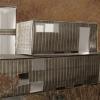
Make a Model of a Home Made From Shipping Containers
Source Institutions
In this activity, learners watch a video to learn about a couple who built a home out of shipping containers in Brooklyn, New York.

Using Different Models of Earth
Source Institutions
In this activity, learners explore how the shapes, sizes, and distances of land masses appear differently on two different models of Earth: an icosahedron and a flat map.
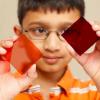
Exploring Materials: Nano Gold
Source Institutions
In this activity, learners discover that nanoparticles of gold can appear red, orange or even blue. They learn that a material can act differently when it’s nanometer-sized.
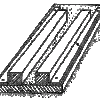
Clay Beams and Columns
Source Institutions
In this activity, learners make or use pre-made clay beams to scale and proportion. Specifically, they discover that when you scale up proportionally (i.e.
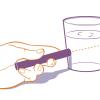
Beam Me Up!
Source Institutions
This is a quick activity (on page 2 of the PDF under Stained Glass Activity) about the "Tyndall effect," the scattering of visible light when it hits very small dispersed particles.
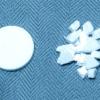
Fizzy Nano Challenge
Source Institutions
This lesson focuses on how materials behave differently as their surface area increases.

Building Tall
Source Institutions
In this engineering activity (page 2 of PDF), young learners investigate how a wide base can make a building more stable. Learners use blocks or boxes of different sizes to construct stable towers.
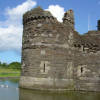
Castle Basics
Source Institutions
In this four-day lesson, learners identify three-dimensional forms in castle design, research different parts of the castle with a focus on their uses, and design and enlarge a banner for the great ha
